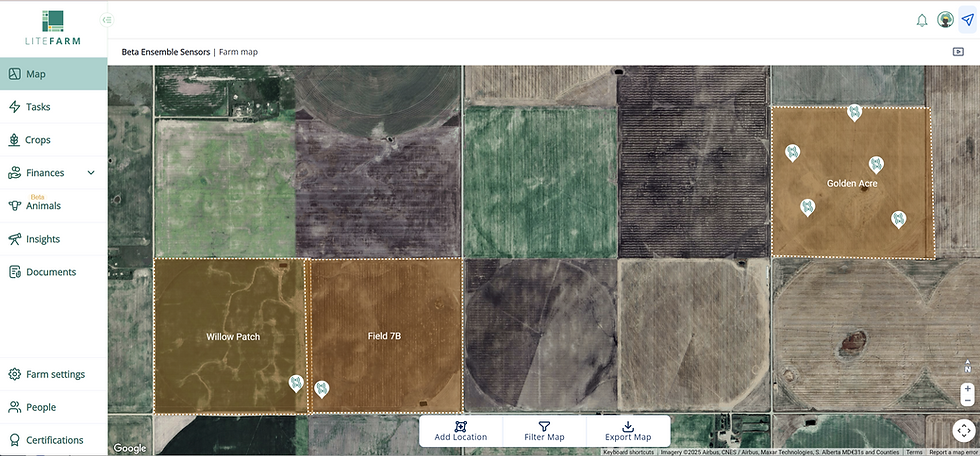Researchers Collaborating on LiteFarm Meet in Argentina
- David Trapp
- Dec 4, 2023
- 2 min read
Dear LiteFarm community,
On November 27th and 28th, a team of six researchers collaborating on LiteFarm convened at the Natural Resources, Agroecology, and Rural Development Research Institute (IRNAD) in Bariloche, Argentina, which is a part of the National University of Rio Negro (UNRN).
This meeting, along with previous meetings and fieldwork, was made possible with the support of the New Frontiers in Research Fund (NFRF), an initiative of the Social Sciences and Humanities Research Council (SSHRC). The interdisciplinary research group comprises academics from UNRN, the University of British Columbia (UBC) in Canada and the Federal University of Santa Catarina (UFSC) in Brazil.

Within the various areas of research, the overarching theme is analysing how socioeconomic and biophysical factors act as constraints or drivers in the diversification of agroecosystems. Labour requirements, land size, the dynamics of commercialization chains and the configuration of the landscape are some of the farms’ aspects that are being evaluated.
Research is ongoing at various levels: locally, where fieldwork was conducted in Brazil and Argentina by integrating LiteFarm with other data collection tools; and globally, where methodologies for independently validating data entered by LiteFarm users are currently under investigation.

A researcher from UNRN presents preliminary results at IRNAD in Bariloche, Argentina.
The fieldwork was carried out with a diverse set of farmers: from small-scale agroecological family farmers to large conventional monoculture producers. During the meeting, the preliminary results were discussed and next steps were identified.

Researchers debate the incorporation of new functionalities in LiteFarm at IRNAD in Bariloche, Argentina.
The researchers also discussed how LiteFarm can improve positive ecological and socio-economic outcomes for farmers with the incorporation of new functionalities through the use of mathematical models, establishment of partnerships, and creation of new projects.

LiteFarm researchers and collaborators gathered in Argentina.
International collaborations are crucial in comprehending how LiteFarm can adapt effectively to address the diverse challenges faced by farmers in different countries, encompassing a range of environmental and socio-economic factors affecting the agricultural sector.
Happy farming!
The LiteFarm team



Just completed my graduation and searching for a data analyst job in Dubai, it’s inspiring to read about initiatives like LiteFarm that show how data, research, and collaboration can drive meaningful, real-world impact. A great example of how data analysis can create meaningful real-world impact across different regions.
Kudos!